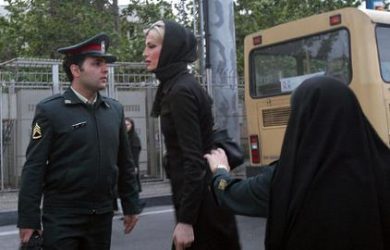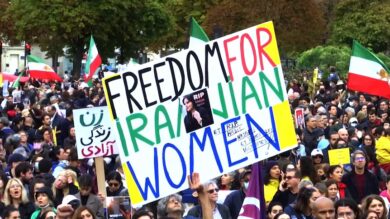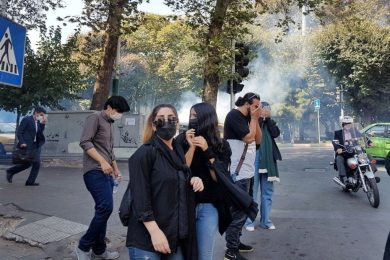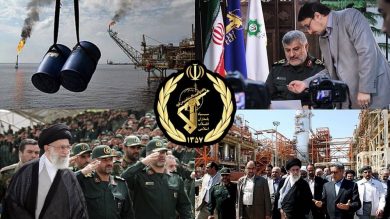The Islamic Revolutionary Guard Corps (IRGC) has evolved from an internal security force into a sprawling, militarized empire with reach far beyond Iran’s borders. It finances terrorism, crushes dissent, sponsors proxy wars, and commits egregious human rights violations. For years, governments and human rights advocates have debated the most effective ways to curb the IRGC’s influence—and one of the strongest legal tools available is terrorist designation.
This article explains what terrorist designation means, how it works under various legal systems, what consequences it carries for the IRGC, and why coordinated international action is critical to isolating and weakening this dangerous force.
1. What Is Terrorist Designation?
Terrorist designation is a legal mechanism used by countries to formally identify an individual, group, or organization as engaged in terrorism. The criteria and consequences vary by jurisdiction, but in essence, the designation serves three primary purposes:
• Criminalization of association, support, or cooperation with the group
• Asset freezing and financial isolation
• Diplomatic signaling of the group’s illegitimacy
Once a group is designated, its members, funders, and affiliates may be subject to arrest, sanctions, or deportation. Banks are required to freeze accounts. Businesses are banned from interaction. Governments can more easily cooperate in intelligence-sharing and enforcement.
2. Legal Frameworks: How Countries Designate Terror Groups
Different countries and international bodies have distinct legal paths for designation:
United States – Foreign Terrorist Organization (FTO)
• Administered by: U.S. State Department
• Criteria: Engages in terrorist activity, threatens U.S. nationals or national security
• Consequences:
• Immigration bans
• Criminal penalties for material support
• Asset seizure and banking restrictions
In 2019, the U.S. designated the entire IRGC as a Foreign Terrorist Organization—the first time a branch of a foreign military received this label.
Canada – Criminal Code Terrorist Entities
• Administered by: Public Safety Canada
• Criteria: Participation in, facilitation of, or association with terrorism
• Consequences:
• Illegal to provide or receive funds or services
• Seizure of assets
• Grounds for immigration ineligibility
Canada currently designates the IRGC’s Quds Force, but not the entire IRGC—despite parliamentary pressure to do so.
European Union – EU Terror List
• Administered by: EU Council
• Criteria: Involvement in terrorist acts, based on competent authority’s decision
• Consequences:
• Asset freeze in EU
• Ban on financial support
• Travel bans on individuals
As of now, the IRGC is not on the EU’s terrorist list, although the European Parliament passed a non-binding resolution urging it.
United Kingdom – Terrorism Act 2000
• Administered by: Home Secretary
• Criteria: Involvement in terrorism, or promoting and encouraging terrorism
• Consequences:
• It becomes a criminal offense to belong to or support the organization
• Asset seizure and legal penalties
In 2023, the UK began discussions on formally designating the IRGC, but a final decision remains pending.
3. Why Terrorist Designation Matters
a. Legal Consequences
• Freezes assets globally
• Bans donations, service contracts, and business interactions
• Criminalizes support or public endorsements
• Restricts travel, banking, and employment options for members or affiliates
b. Diplomatic Consequences
• Deters foreign governments and companies from cooperating with IRGC affiliates
• Strengthens multilateral pressure on the Iranian regime
• Undermines Iran’s use of the IRGC in foreign diplomacy and business
c. Financial Consequences
• Forces international banks to cut off IRGC-affiliated accounts
• Interrupts smuggling and laundering networks
• Makes it harder to move cash or crypto internationally
d. Moral and Symbolic Weight
• Signals solidarity with victims of IRGC terror
• Validates the lived experiences of dissidents and refugees
• Makes it harder for the regime to normalize or sanitize IRGC actions
4. What Parts of the IRGC Would Be Targeted?
The IRGC is a massive organization with multiple branches. A comprehensive designation targets:
• IRGC Command Structure (top generals and decision-makers)
• Quds Force (external operations and terror campaigns)
• Basij Militia (domestic suppression force)
• Khatam al-Anbiya (economic conglomerate of the IRGC)
• IRGC-linked Banks and Front Companies
Designation should be holistic. Targeting only the Quds Force leaves much of the IRGC’s apparatus untouched. The U.S. approach—designating the entire IRGC—sets the most complete precedent.
5. The IRGC’s Global Operations—A Legal Justification
Terrorist Operations Linked to IRGC/Quds Force:
• 1983 Beirut barracks bombing (241 U.S. Marines killed)
• 1994 AMIA Jewish Center bombing in Argentina
• Supply of IEDs to Iraqi militias killing U.S. and allied troops
• Assassination plots in Europe (France, Netherlands, Germany)
• Arming Hezbollah, Hamas, and the Houthis
These incidents more than meet the legal criteria for terrorism in most jurisdictions.
6. Challenges and Counterarguments
Some governments hesitate to designate the IRGC for reasons including:
a. Fear of Diplomatic Fallout
• Iran may retaliate diplomatically or militarily.
• Foreign embassies and dual nationals in Iran could be endangered.
b. Legal Complexities
• Designating a branch of a foreign military raises questions under international law.
• Risk of complicating diplomatic negotiations, e.g., nuclear talks (JCPOA).
c. Economic Concerns
• European firms may have contracts tied to IRGC-affiliated entities.
• Banking and energy sectors may face compliance burdens.
However, none of these outweigh the human rights, security, and legal imperatives.
7. Case Studies of Effective Designation
United States (2019)
• IRGC designated under Section 219 of the Immigration and Nationality Act.
• Result: Increased pressure on Iran’s economy, limited IRGC global mobility, exposed networks of shell companies.
Germany (2023)
• Banned IRGC symbols and initiated steps to increase pressure on affiliated groups.
• Demonstrated that even without EU-wide action, national governments can move unilaterally.
France and the Netherlands
• Expelled Iranian diplomats after foiled IRGC-linked assassination plots.
• Sent a clear message about IRGC interference.
8. Roadmap to Global Designation
Step 1: National Advocacy
• Civil society, activists, and lawmakers pressure national governments.
• Use of parliamentary resolutions (e.g., Canadian and EU Parliaments).
Step 2: Intelligence Sharing
• Link IRGC operations with terrorism cases via declassified documents or victim testimony.
Step 3: Legal Documentation
• Submit case files showing compliance with domestic terrorism criteria.
• Collaborate with think tanks and legal NGOs to build evidence.
Step 4: Public Awareness
• Media campaigns to highlight IRGC crimes and atrocities.
• Mobilize diaspora communities to testify and organize.
Step 5: Coordinated Designation
• Push for simultaneous or cascading designations among the U.S., UK, EU, and others.
9. What Citizens Can Do
You don’t need to be a policymaker to help push for designation. Here’s how individuals can support the effort:
• Contact your representatives and urge action
• Sign and share petitions advocating designation
• Raise awareness by sharing stories of IRGC victims
• Organize campaigns and public events
• Support NGOs and advocacy groups working on this issue
The louder the public voice, the harder it is for governments to ignore the call.
10. The Path Forward: From Symbol to Sanction
Designating the IRGC as a terrorist organization is not just a label—it’s a powerful legal instrument.
It isolates the group, dismantles its financial lifelines, curbs its movement, and amplifies accountability. But most importantly, it shows victims—from Syria to Tehran, from Beirut to Paris—that the world is listening.
This designation is long overdue. Governments must act—not just for their own security, but for the principles of justice, human rights, and international law.
Conclusion: Time for Global Action
The IRGC has left its bloody mark on protests, parliaments, and populations from Iran to Argentina. Designating it as a terrorist entity is not just justified—it is necessary. The question is no longer “Why?” It’s “When?”
Join Our Newsletter!
Stay informed with the latest updates, news, and ways to take action in the fight for justice and global security. Sign up now to get updates delivered straight to your inbox!





